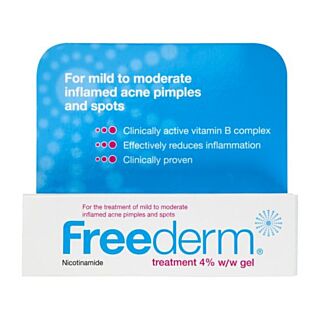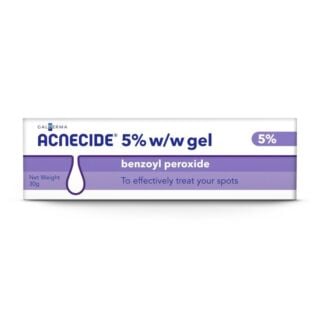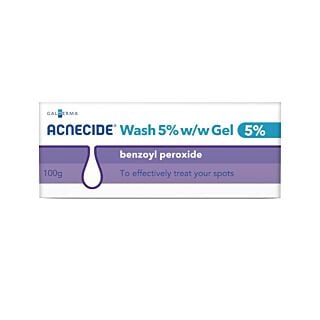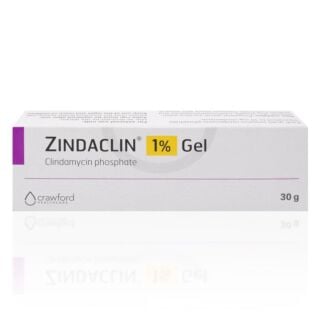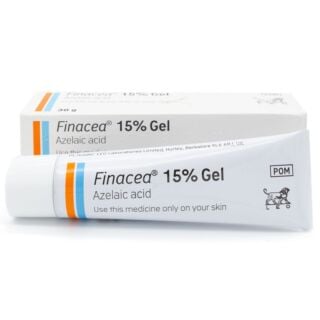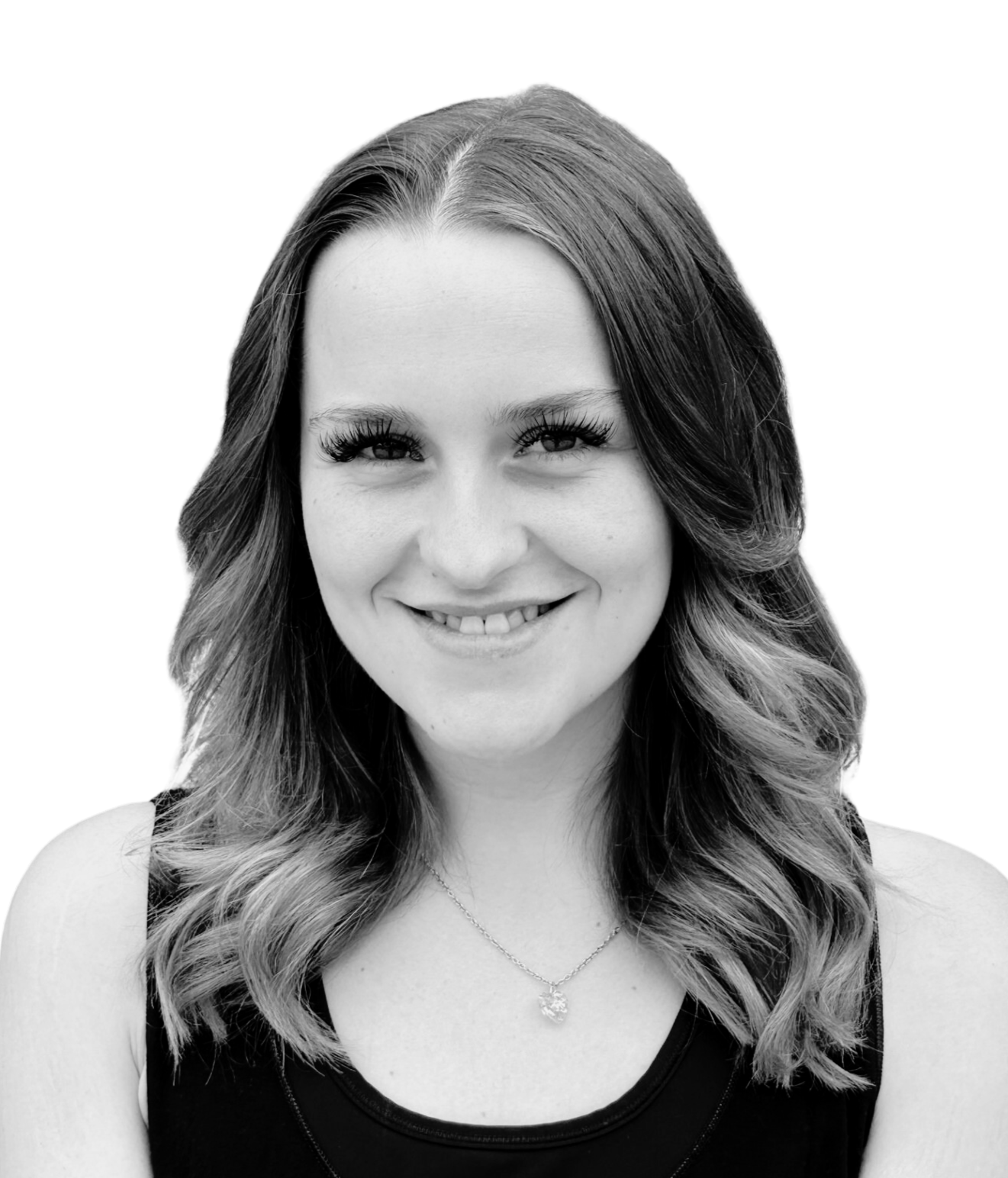10 different types of acne & how to treat them

Acne is a common skin condition that affects many people. It can be stressful, and dealing with breakouts is often frustrating!
Whiteheads, blackheads and spots almost always come at the most inconvenient time and can knock your confidence.
There are many different types of acne that you can get. From back acne (bacne) to pregnancy acne, this guide will tell you everything you need to know and talk you through the acne treatments available…
What are the different types of acne?
Cystic acne
Cystic acne is a type of severe acne. It develops when cysts begin to form underneath your skin. Usually, it’s caused by a combination of trapped oil, bacteria and dry skin cells in your pores.
It's inflammatory acne that's deeper in the skin compared to other types of acne. Although anyone can develop acne, cystic acne is more common in teens, women and older adults with hormonal imbalances.
Fungal acne
Fungal acne is caused by an overgrowth of yeast. It leads to itchy red bumps and pimples on the upper body. The small pimples are usually all similar in shape and size. You’ll find these pimples on your chest, back and arms.
It’s caused by a fungus called malassezia. Unlike other acne, the pimples you get with fungal acne can be very itchy.
Back acne (bacne)
Back acne is a type of acne that can be found on your back. It causes pimples that present themselves as red bumps, blackheads or whiteheads. It’s common in teenagers and men.
It can be made worse by rucksacks, sweaty shirts and sports equipment that create friction on your back.
Forehead acne
Forehead acne can have many potential causes. The most common causes of forehead acne include:
- Pore-clogging hair products
- Stress
- Hormonal changes
- Certain medications
- Skin irritation from hats and makeup
It develops when the glands under the skin of the forehead become blocked with sebum (oil), bacteria or dead skin cells.

Cheek acne
There are two types of cheek acne: acne vulgaris and acne mechanica. Acne vulgaris is caused by excess oil production, whereas acne mechanica is caused by friction. Rubbing and friction is usually from mobile phones and pillowcases.
Dirty makeup brushes can also be a direct cause of cheek acne.
Your cheeks are more prone to inflammatory types of acne, however, acne on your cheeks is one of the easiest to prevent.
Bum acne
Acne on your bum isn’t often spoken about. Just like regular acne, spots on your bum can be caused by genetics and hormones.
Spots on your bum can be different as the likely cause behind them is folliculitis, a condition that happens when bacteria and dead skin cells get into your hair follicles. This causes inflammation.
Bum acne is also often caused by external factors, whereas typically, acne on the face isn’t.
Chest acne
Chest acne can develop in the same way as other acne on your body. However, some factors can be a direct cause of chest acne.
Excessive sweat that hasn’t been washed properly, friction on your skin from clothes, and lotions and creams containing oil are all culprits for causing acne on your chest.
It’s also a myth that poor hygiene can cause chest acne. Dirt on your skin doesn’t cause acne and using harsh chemicals and rough scrubbing can actually make it worse!
Stress acne
Acne can be caused by stress. When you experience stress, the level of cortisol rises in your body. With a rise of this hormone over a period of time, it can lead to acne breakouts.
When you are stressed, your body releases more of substance P. Substance P can cause your glands to produce extra sebum which can cause clogged pores and breakouts.
[1]
Hormonal acne
It's no secret that hormonal fluctuations can cause acne. It's commonly associated with puberty but it can affect adults at any age, in particular women.
During puberty, hormonal acne appears in the T-zone. This includes chin acne, forehead acne and acne on your nose. In adults, it’s typically present in the lower part of the face, such as the bottom of the cheeks and around your jawline.
Hormonal conditions can also cause acne. Polycystic ovary syndrome (PCOS) can cause women to struggle with acne, and they might notice that their lesions are deeper, larger and take longer to resolve.
Menopause can also be another contributor to hormonal acne. Hormonal imbalances during menopause are what often lead to acne.
Sometimes, during pregnancy, women will have problems with acne. It’s usually caused by excess oil that’s produced when your body creates larger amounts of certain hormones.
Acne scars
Scarring can sometimes develop as a complication of acne. All types of acne can leave you with scarring but it’s more common with severe acne.
Scarring can happen if you pick or squeeze your spots. As tempting as it is, leave them alone!

How to treat cystic acne
Cystic acne can be difficult to treat as the spots are more prone to scarring. It can take three months, if not longer, to clear acne cysts. If you’re dealing with cystic acne you should speak to your GP to help you with treatment.
Treatment often requires you to take oral antibiotics alongside applying a prescription-strength gel or cream to the affected area of your skin.
Sometimes, if your acne is very severe and other treatments haven’t been successful, you might be prescribed a medicine known as isotretinoin, or more commonly known by the brand name Roaccutane or Accutane.
Accutane can help to treat deep, painful cysts and nodules. It works by stopping your skin from preventing too much oil. However, it isn’t suitable for everyone (particularly if you’re pregnant, breastfeeding or could be pregnant) and it can cause side effects such as:
- Dry skin, eyes, nose or lips
- Rashes and mild itching
- Sore or dry mouth and throat
- Headaches
- Aches in the muscles and joints
How to treat fungal acne
Your healthcare provider can treat fungal acne by prescribing you oral or topical antifungal medications. The most effective oral medications are fluconazole and itraconazole.
Fungal acne can also be treated with topical preparations. This can include creams or shampoos. Sometimes, it’s recommended that you try a topical treatment before an oral treatment.
How to treat back acne
When it comes to treating mild back acne, there are over-the-counter (OTC) creams and gels that contain ingredients such as benzoyl peroxide, resorcinol, salicylic acid and sulphur that can help to get rid of spots.
Back acne treatment can be difficult to apply by yourself. You can opt for a body wash that includes acne-fighting ingredients for convenience and ease.
How to get rid of forehead acne
Getting rid of forehead acne starts with good skin care. Washing your face twice a day with a gentle cleanser will remove excess oil from your skin. You should opt for skin care products that are oil-free.
There are natural remedies that can help treat mild acne including:
- Aloe vera
- Azelaic acid
- Green tea extract
- Tea tree oil
- Zinc
If you’re still struggling with acne after trying at-home treatments, you can try OTC creams or speak to your GP or pharmacist, who might prescribe you stronger acne medication.
Cheek acne treatment
If it’s habits or lifestyle factors that are causing breakouts on your cheeks, then it’s easy for you to make a few changes. Wash your make-up brushes more often and avoid touching your cheeks.
If you have changed your habits and have tried OTC treatments but you’re still struggling with cheek acne, you might need antibiotic treatment.
How to get rid of butt acne
In most cases, you can treat acne on your bum by avoiding tight-fitted clothes. Showering immediately after you exercise can also help to clear acne on your bum.
Tea tree oil and benzoyl peroxide are two treatments that can also get rid of the spots on your bum.
Alternatively, you can apply a warm compress to the area which will help to soothe irritation and release pus from whiteheads. You should apply the warm compress for 15 minutes at least 3 times a day.

How to treat chest acne
Ensuring that you care for your skin can help to combat chest acne. Make sure you opt for gentle cleansers and non-comedogenic creams to avoid clogged pores.
OTC gels and lotions can also help with chest acne. Adapalene 0.1% gel, benzoyl peroxide and salicylic acid can provide you with relief.
How to get rid of acne caused by stress
The best way to get rid of acne caused by stress is simply to manage your stress! You can try deep-breathing exercises and progressive muscle relaxation which can help to prevent acne flare-ups.
Creams that contain vitamin A can also help to get rid of this type of acne. It can help to reduce inflammation, redness and cell damage.
How to treat hormonal acne
There are a few changes you can make in your daily life to treat hormonal acne, such as daily skin cleansing and changing your diet. Laser and light therapy and birth control pills (oral contraceptives) are also effective hormonal acne treatments.
Acnecide is an OTC treatment that can help tackle hormonal acne. It works as an antiseptic to reduce the amount of bacteria on your skin.
If you’re struggling with moderate to severe hormonal acne then you might need prescription medication to treat it.
Acne scar treatment
There are different types of acne scars and different levels of severity. The treatment you will need for scarring depends on the severity of it. If you have minor scarring then using suncream and medicated cream might be able to help.
Steroid injections can be helpful for raised scars and can improve the appearance of your skin.
Other ways you can treat acne scars include:
- Soft tissue fillers
- Energy-based procedures
- Dermabrasion
- Chemical peels
- Skin needling
- Botox
- Surgery
Prescription-only acne treatments
If you have not been able to resolve your acne issues with at-home treatments or OTC medicines, then your healthcare provider might prescribe you a prescription-strength treatment. They will assess the severity of your acne before they prescribe you medication.
Several topical prescription gels are available for acne, and your prescriber will decide on your treatment.
Zindaclin Gel works as an antibiotic by fighting the bacteria that cause acne. Some side effects of Zindaclin Gel include redness of the skin, itching, and irritation around your eyes.
Another option might be Finacea Gel, which contains azelaic acid. It kills the bacteria that is responsible for infecting blocked pores. Treclin Gel is similar to Finacea Gel; it also reduces bacteria alongside oil while reducing inflammation.
Anti-androgen medicines such as spironolactone might be prescribed off-label to help with moderate to severe hormonal acne. It can help to control hormonal acne by blocking the effects of androgens and progesterone on the skin. It is only prescribed by a dermatologist if other treatments have been unsuccessful.
[2]
Sometimes, if your acne is very severe and other treatments haven’t been successful, you might be prescribed a medicine known as isotretinoin, or more commonly known by the brand name Roaccutane or Accutane.[3]
How can I avoid getting acne & how do I stop it coming back?
You can avoid acne by staying clear of products that contain oil. Opting for water-based products lowers the chances of blocked pores. Non-comedogenic products are the best choice for your skin as they won’t block or clog your pores. Make sure that you’re keeping on top of your skincare regime, too.
Try and keep your hands away from your face and watch what products you’re putting on your hair. If the products get on your face, you might end up with clogged pores.

Acne is common, and most people will experience acne at some point in their life. It’s not something you should be worried about, but if your acne is very severe or it’s impacting your life, you should always book in to see your GP. For more information, visit the NHS website or speak to a healthcare professional for advice.

